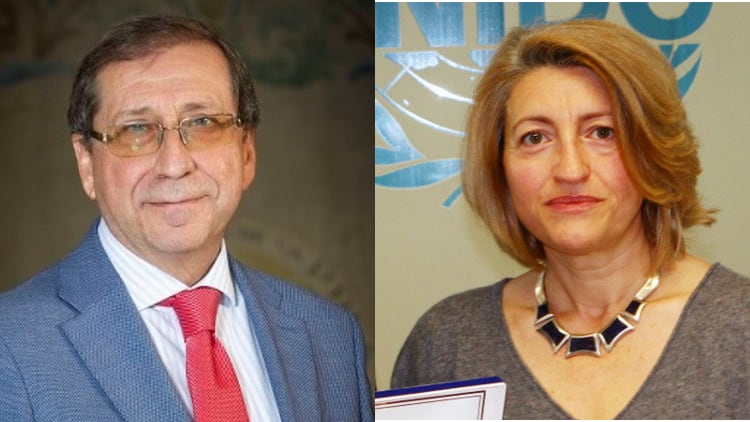The Diplomat
The editor of The Diplomat in Spain, Luis Ayllón, has been acquitted following a lawsuit filed against him for unlawful interference with his honour by the former Spanish ambassador to Mozambique Carmen Buján, who was removed from her post on 11 July 2019, just eleven months after being appointed.
The Provincial Court of Madrid dismisses the appeal filed by Carmen Bujan and confirms the ruling, handed down on 4 May 2022 by the head of Madrid Court of First Instance number 45, Juan Antonio Lara Domínguez, acquitting Luis Ayllón and also the journalist Paula Bruni, of El Confidencial, and ordering the plaintiff to pay the costs of the proceedings.
In a detailed statement, the judge of the court of first instance dismantles all the arguments put forward by the former ambassador, who claimed, among other things, that The Diplomat in Spain and El Confidencial should be ordered to pay 15,000 euros on the grounds that the information they published about her dismissal did not correspond to the truth as regards the reasons for her dismissal.
The magistrate points out, among other things, that the documents provided by the plaintiff and even her own interrogation reveal that the information published “cannot be described as untruthful at all”. The dismissal agreed by the Council of Ministers on 11 July was published the following day in the Official State Gazette.
Thus, it indicates that Carmen Buján herself recognises that she was dismissed by the then Minister of Foreign Affairs, Josep Borrell – who had appointed her as ambassador in Maputo in August 2018 – due to a loss of confidence, so she understands that she knew the reasons for the dismissal, although she did not share them.
Similarly, he notes that the former ambassador acknowledges, as reported by The Diplomat, that she was not proposed for any posting abroad in the 2020 call for applications, something that the judge understands, in line with the information disseminated by this website, to be due to a veto derived from the result of the inspection that was carried out on the ambassador by order of the undersecretary of the Ministry of Foreign Affairs.
The magistrate stresses that the complaints of the trade unions about the poor treatment of the ambassador’s staff by the ambassador and the accounting irregularities to which The Diplomat referred in its information, were confirmed by the General Inspectorate of Services of the Ministry.
“It is obvious to say -the sentence states- that the loss of confidence is not a motive in itself, but the consequence of other circumstances, or in other words, confidence is not lost for its own sake, but because some circumstance causes or justifies the lack of confidence. And this is the question that journalists find out”.
“The information obtained by the journalist is a faithful reflection of what the undersecretary herself communicates to the plaintiff, and is not an invention,” he adds.
Taking as a basis the information provided by the plaintiff about the inspection carried out, the judge concludes that Luis Ayllón’s article, in which he states that “Borrell dismissed the ambassador to Mozambique in barely a year”, is not untrue, nor when he goes on to say that it was due to a loss of confidence, nor that this was the result of a visit to the Embassy by the General Inspectorate of Services of the Ministry at the request of the undersecretary.
“Nor can it be said, the ruling adds, that it is untrue that this was the result of a series of complaints by the trade unions concerning the poor treatment of embassy staff by the ambassador, which, according to the article, the inspection visit reduced to ‘inappropriate treatment of embassy officials’, and it is also true that an accounting irregularity was investigated”.
The magistrate also understands that there is no conflict between the right to honour and the right to information, because “there is no doubt that the dismissal of a high-ranking state official is a matter of general interest or public relevance”. He added that, furthermore, none of the articles referred to elements of the ambassador’s private life, unrelated to the performance of her duties.
The judge underlines that it is part of the obligations of the media to inform the public about the workings of public bodies. He also notes that none of the articles used “unequivocally insulting or vexatious expressions.
On the other hand, the ruling points out that the entire complaint implicitly leads to the disclosure of the ambassador’s complaints about the manner of her dismissal, “which – it indicates – should have been addressed to the Ministry” and not to the journalists’ writings.
Consequently, the judge dismissed all of Carmen Buján’s claims and ordered her to pay the costs.
The Madrid Provincial Court now confirms the terms of the first instance ruling and underlines the veracity of the facts regarding the dismissal of Carmen Buján as ambassador to Mozambique, which it considers to be a matter of public relevance and general interest.







